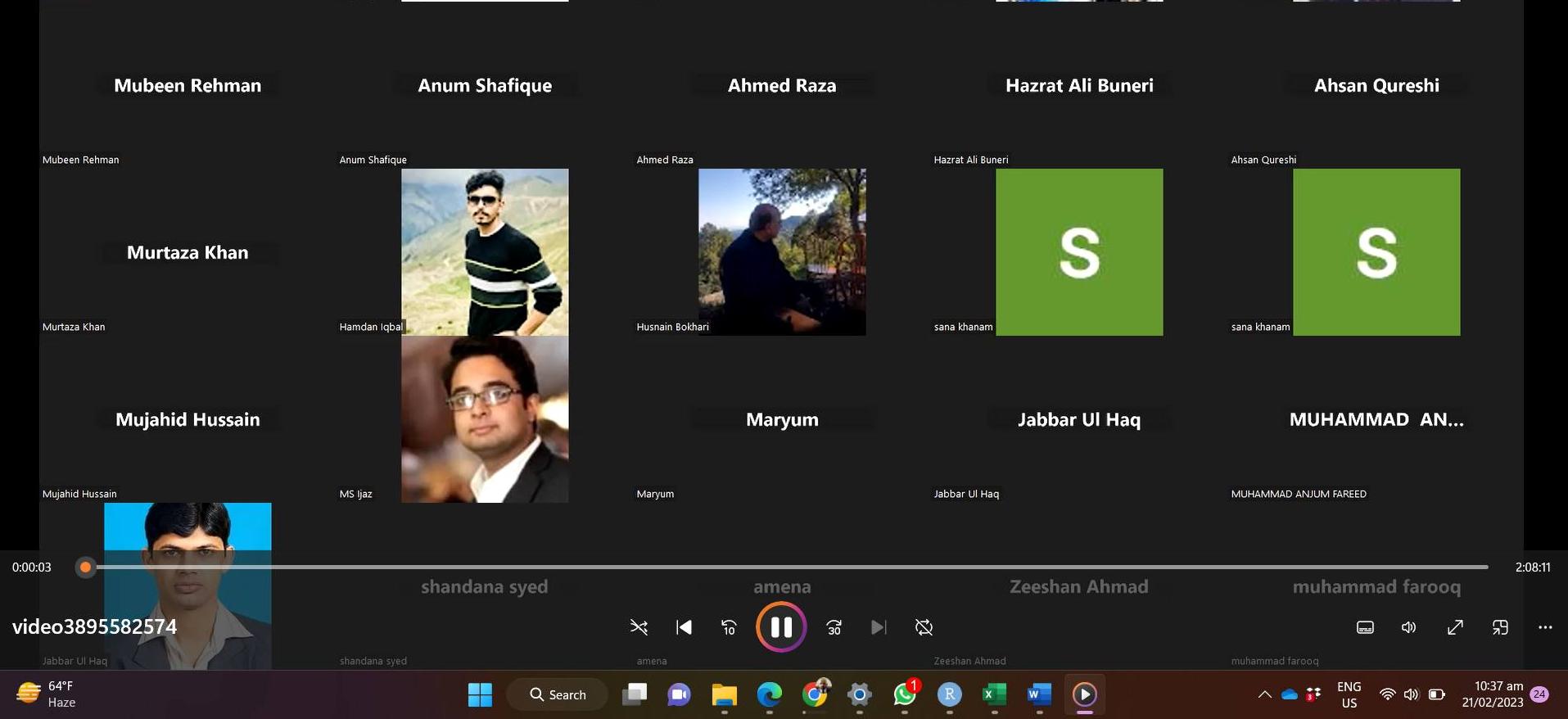Virtual Learning: A WayForward for Higher Education

Pakistani universities were mainly launched as teaching institutions like many colleges in the United States in the 19th century. There were limited research programs. Later, research element was introduced with a focus on quantity and achievement of certain metrics. As a result, more faculty and staff were recruited besides adding many bureaucratic staff in the name of quality enhancement, commercialization of research, and creating an imbalance in the faculty pyramid among many others. Most of these administrative jobs were created in the name of improving quality of research.
Pension, salaries, and many other expenditures besides having more staff have increased manifold over time. Successive governments have not increased financing of the universities proportionate to their budgetary requirements. Universities are hard pressed to use the instrument of increasing fee and increasing enrolment without any concern for the quality.
Business as Usual

Question is how long this business-as-usual (BAU) approach will allow universities put extra burden on students’ parent pockets. Parents are already facing economic miseries due to high inflation and limited earning opportunities. What are possible solutions and way-forward. This requires serious introspection and integrated thinking for reimagining higher education in the third decade of the 21st century.
Scaling and Developing Learning Outcome Ecosystem
World has gone digital and covid-19 pandemic has exposed the globe for online learning and Pakistan too have remained in this phase for two years. So digital emersion can help universities to come out of not only financial crisis but also can play an effective role in reaching those who have been unserved so far either due to financial constraints or limited enrollment capacity of the universities.
Moreover, it will help millions of Pakistanis to benefit from reputed Professors who are currently accessible to a privileged 100 or students per year. On one hand, Covid-19 pandemic has disrupted the entire traditional education system across the globe. But simultaneously it has opened many new opportunities to have tertiary education accessible to masses which was not possible before covid-19 pandemic. Cost of tertiary education is very high and has also limited capacity for scaling at large scale. But post-Covid-19 pandemic era has made it possible to provide tertiary education to most if not all at very affordable cost besides provision of flexible learning opportunities so that no one is left behind.

Change is already here. Technological companies like Amazon, Google, Microsoft, all are offering their own badges, certificates, and credentials. Though these are for entry level jobs, gradually these companies will move up the educational food chain. These companies already carry an advantage of being operating at scale.
Online learning is different than distance learning and those who express their reservations about online learning and prefer physical learning basically confuse “Learning” and “Time”. Their focus is on “Time” as fixed variable while “Learning” as a variable. But the concept of making “Learning” as fixed and “Time” as variable can make both online learning equally or even more useful than physical learning. While both can be good or bad in routine. Don’t proponents of physical learning think that delivering a lecture to 40 to 50 students for three hours in one go per week and expecting students to grasp all the stuff is not a workable idea. Virtual learning mode with competency-based learning not only provides live lecture but also opportunity to understand it after the class.
Secondly, virtual, and online learning mode will not only help to have more enrollment but also significant reduction in cost of delivery of lecturing. To have experiential learning, there can be gradual shift towards this online learning and initially general courses can be offered by Pakistani leading scholars in the field across the country. If one fourth or one fifth courses can be offered through virtual mode with Pakistan leading scholars at the first stage, it will immensely benefit all stakeholders- students, universities and higher education management. To overcome the fear of cheating, exams can be conducted at respective departments. This will not only reduce financial burden on universities’ exchequer but also help students to learn from scholars of international repute instead of each batch of forty to fifty students getting different quality education from part time teachers. This financial cushion maybe utilized for research and providing fee concessions to students.
If post-Covid online learning opportunity will not be utilized, future of universities will become highly uncertain. All public sector universities are in serious financial crisis and are unable to spare money for research and development as these are already short of paying their salaries, pensions, and utilities. How long will universities survive on this ever-increasing deficit model? How long one can resist for not adapting oneself to changing circumstances? What level of compromise on quality of soft and hard infrastructure universities will afford?
Scaling of higher education through digital and online learning platform will be a win-win situation both for the universities and society. There will be new forms of content delivery, new ways to access learning, and new ways to certify that a learner has mastered various concepts. Above all, online platforms are one of the main tools for reaching the unreachable.
Business as usual will not help to resolve universities’ financial issues even if there is some budget increase by the government which is a remote possibility in the next couple of years due to national and international economic concerns. Our universities’ financial viability depends how diligently we work on finding solutions to our problems by ourselves instead of getting some consultants and managing some aid to overcome crisis for the time being.